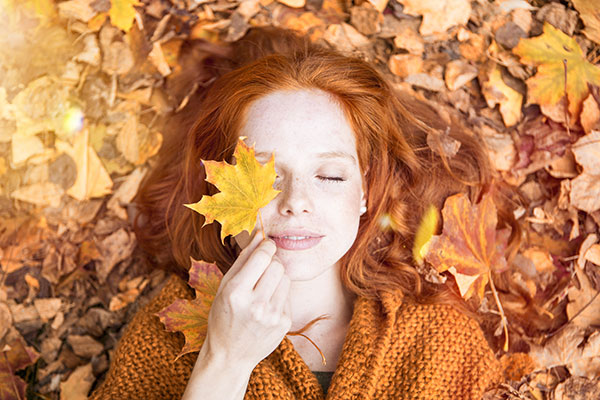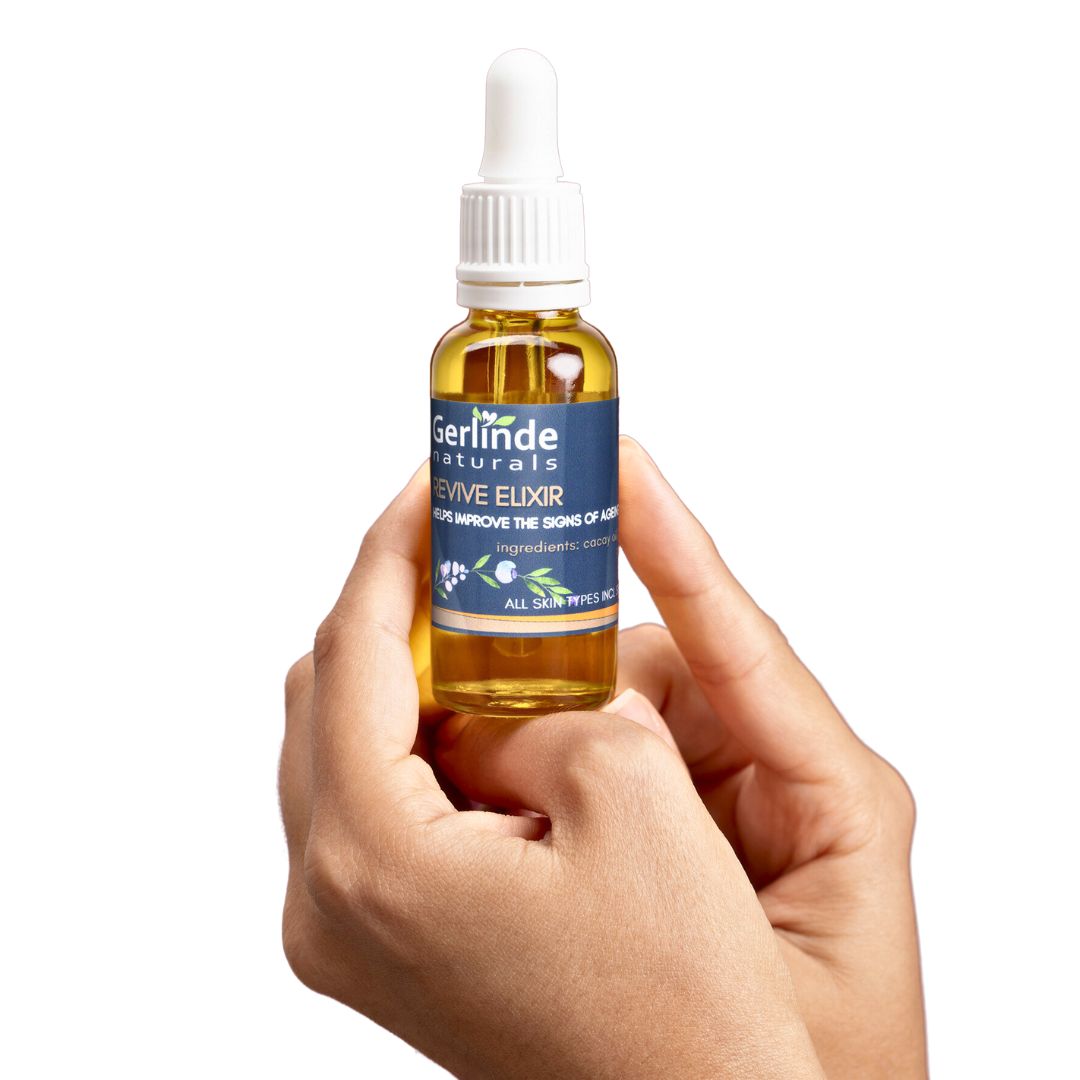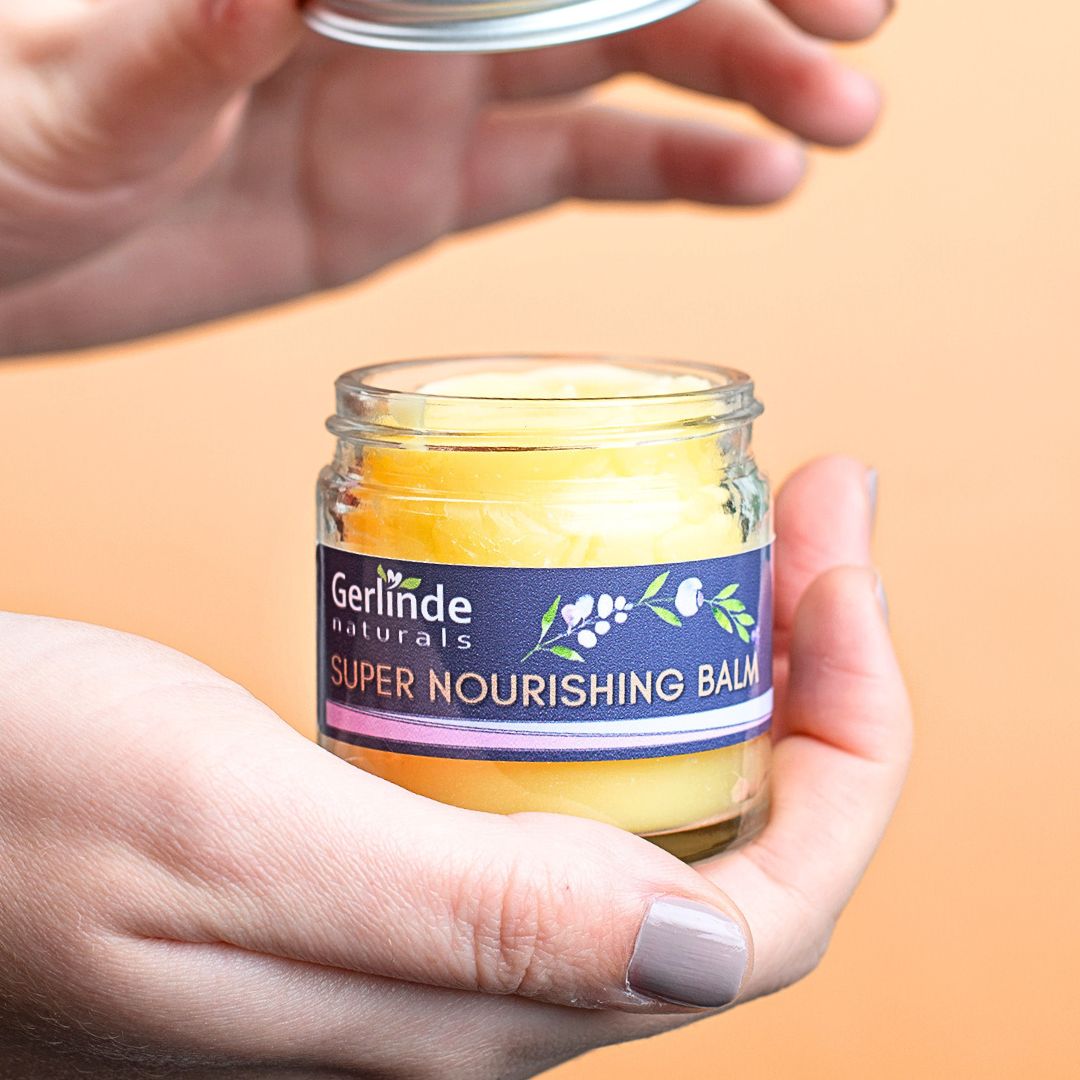11 Tips for Dry Autumn and Winter Skin
If your skin has been dry lately, you are not alone. Cold weather, harsh winds, and dry indoor air all conspire to suck the moisture out of skin during the autumn and winter months, leaving it dry, cracked, and scaly. Cheeks, arms, and legs have almost no sebaceous oil glands and are therefore drier in winter months. Since the skin on your hands is thinner than in other places it needs extra protection and care. Cold weather and winds can also aggravate your skin.
To keep your skin smooth and hydrated, follow these simple steps.
1. Avoid taking long hot baths or showers, or using saunas, during the winter months. Hot water can rob the skin of its moisture. Instead, use moderate-temperature water for shorter periods of time.
2. If you take a bath, add a few drops of olive or almond oil to the water to help moisturise the skin. Try and use cleansing products that are SLS, SLES and Paraben FREE to avoid skin irritation. Products containing SLS's can be very harsh and strip the skin of its natural oils.
3. Moisturise skin with Shea or pure Cocoa butter after showering or bathing. Shea and Cocoa butter are natural perfect skin soothers and keep your skin supple. Apply the oils or moisturiser to the skin when it is slightly damp. That way, moisture becomes trapped in the skin rather than evaporating in the air.
4. Exfoliate dry skin with a gentle body scrub as often as needed. Once a week should be plenty. If you have very sensitive skin you can use finely ground oats and mix with a spoon or two of almond or coconut oil.
5. Use a humidifier to keep moisture in your home and office air, or keep a bowl of water on your radiators to add moisture to the air. The higher the heat indoors, the less humidity there will be. It is the humidity that helps keep skin from drying out. Don’t forget to change the water and clean humidifiers and bowls regularly to avoid bacteria from spreading.
6. Check the labels on your skincare products, and avoid toners and other products that contain alcohol, which can dry out the skin. Opt instead for products that contain less-drying astringent ingredients such as witch hazel or antioxidant rich ingredients such as Green Tea.
7. Relax into a Healthy Complexion
Sometimes skin dryness is attributed to more than just a seasonal change. When it is red, itchy, and irritated despite daily care, you may have a chronic skin condition. The most common ones, eczema, psoriasis, and rosacea, can be triggered by imbalances such as stress. To help keep these skin conditions under control, practice relaxation techniques such as yoga, meditation, and tai chi regularly. A study conducted by the University of Massachusetts Stress Reduction Clinic, in Worcester, found that when added to a treatment regimen, meditation helped psoriasis clear up more quickly.
8. Skin Food
No matter how well you take care of your skin during the winter months, if you are not eating the right foods your skin still won’t be soft, smooth, and healthy-looking. What you need:
- Drink at least 1 ½ litres of hydrating fluids daily (including water). Coffee, tea, and soft drinks don’t count. (Caffeinated drinks are diuretics, meaning they can trigger the body to eliminate water.)
- Indulge in watery foods, such as soups and avoid dry, crunchy, salty foods as often as possible. Dry foods may help further dehydrate the skin.
- Make sure you are getting enough good fats like omega-3 and omega-6 fatty acids in your diet (not the deep-fried, junk-food kind). These omega fatty acids are found in flaxseed oil, walnuts and walnut oil (omega-3), evening primrose oil, borage oil, and black currant oil (omega-6). Also important is vitamin E. A diet that’s too low in fat, particularly these essential fatty acids, will result in skin that is lacklustre, dry, and prone to chronic skin problems such as eczema.
9. Got Dry, Itchy Skin?
When your skin is dry and itchy and in need of some relief, add some liquorice tea (anti-inflammatory) to your bathwater. The extract from the roots of the licorice plant have been known for quite some time as an effective means of fighting eczema. Some studies have shown that a topical application of liquorice extract on skin problems such as eczema have reduced itching after only 2 weeks. You can also add neem, comfrey decoctions to bathwater, as they can also help soothe the skin.
Consider using Colloidal Oatmeal in a bath if your skin is very dry and itchy. Colloidal Oatmeal can help to alleviate symptoms of a broad range of skin conditions, including eczema, severe dry skin, mild burns. To make a bath, sprinkle about 200 grams (1 cup) of the powder into lukewarm water and soak in it for 10–15 minutes. If it’s your first oatmeal bath, it’s a good idea to do a patch test first. To do so, simply place a bit of the colloidal-oatmeal-water mixture on a small patch of skin, such as a forearm or back of a hand, then rinse after 15 minutes, watching for signs of allergic reaction like redness. Oatmeal can make your bathtub slippery, so take extra caution when you step out of the tub.
10. Tips for Lips (and Cuticles)
Both the lips and cuticles can get dry and scaly during the winter months. To keep lips soft, dry brush them once a week with a soft toothbrush. Doing so helps exfoliate the dry skin. Then apply, as often as needed, vitamin E oil, shea or cocoa butter directly to the lips. For cuticles, soak them for 5 to 10 minutes daily (or several times weekly) in olive oil.
11. Which products to use and how to layer
If your skin is very dry, itchy and sensitive use high quality fragrance free face oils, or mix a couple of drops into a calming and nourishing moisturiser at night time. Use a fragrance free face balm to seal in your night time routine products, to wake up to well nourished and smooth skin.
Dehydrated skin also needs a lot of moisture which can be provided by products containing Hyaluronic Acid ie my Day Moisturiser or Night Moisturiser - both contain above average Hyaluronic Acid to nourish dehydrated skin.



I have extremely dry/eczema prone skin which is massively worse during the winter. Putting liquorice in the bath is a new trick (so thank you), but my main tip is layering of skincare on face and body ie serum, then cream/lotion and then a balm overnight to seal it all in. I also moisturise my face and body twice daily, using the first two layers in the morning and then adding a balm in the evening. So far this winter (now in January) I have not had to use any steroid cream at all, due to this regime. We all know steroid creams thin the skin and keeping their usage to a minimum is much healthier. Natural oils/balms are amazing to feed dry skin, but most of us are also dehydrated, so a serum featuring hyaluroic acid can be really useful too. I hope that can help others in the same situation. Best wishes.
PS please also consider using a SLS free bodywash as this strips any oils out of the skin, making anything you put on afterwards have to work so much harder.